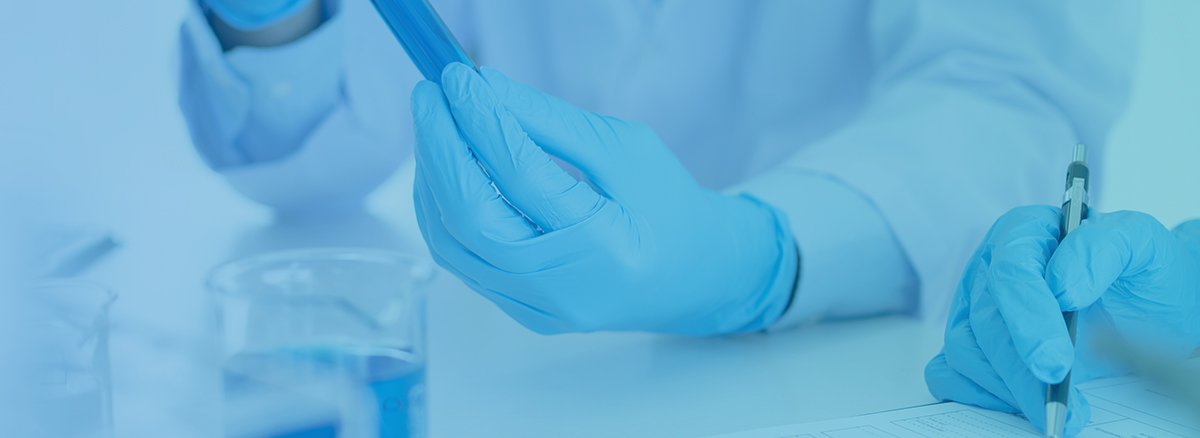Adhering to the concept of "seeking truth from morality and achieving customer success" of Taichu Biotechnology, our drug safety evaluation platform integrates pharmacy, pharmacology and pharmacodynamics, drug efficacy evaluation, drug safety evaluation, and biological analysis, providing safety evaluation research plans that closely bridge drug screening and clinical conversion, and providing global application integration services to assist in the approval of IND and NDA. Our advantages include:
Ø Integrated services and one-stop design, connecting upstream drug discovery and development with downstream drug production and clinical trials
Ø Strict regulatory standards meet the GLP test application requirements of different application agencies such as CDE, FDA, OECD, etc
Ø A safety assessment research team with rich practical experience, providing personalized experimental design solutions from small molecular drugs and biological agents to cell/gene therapy
Ø Advanced testing technology platform, covering analysis technologies such as LC-MS/MS, ELISA, qPCR, in vivo imaging, and flow cytometry
Ø A professional project management team that enhances customer experience from multiple dimensions such as scientificity, high quality, and high timeliness
l General Toxicological Studies
General toxicological research covers dose exploration tests, single dose trials, and repeated dose trials, which can systematically and comprehensively evaluate the toxicological characteristics of drugs.
Ø Single dose toxicity test
The generalized single dose toxicity study refers to the toxic reactions that occur within a certain period of time after a drug is administered multiple times within a single or 24-hour period. Its functions include:
① Can be used for screening early candidate compounds;
② Determine the maximum tolerable dose (MTD) or maximum feasible dose (MFD);
③ In some cases, extended single dose toxicity studies can serve as the main support for human trials;
④ Helps predict the consequences of overdose in the human body and provides data support for phase III clinical trials.
Ø Repeated administration toxicity test
Repetitive administration toxicity refers to the toxicity characteristics of animals after repeated acceptance of the test substance. Its functions include:
① Predict the potential clinical adverse reactions caused by the test substance, including the nature, degree, dose-response and time effect relationship, as well as reversibility of the adverse reactions;
② Determine the toxic target organs or tissues of repeated administration of the test substance;
③ If possible, determine the dose level (NOAEL) at which no clinical adverse reactions were observed;
④ Inferring the initial dose of the first clinical trial (FIH) to provide a safe dose range for subsequent clinical trials;
⑤ Provide reference for monitoring and preventing clinical adverse reactions.
l Local Toxicological Studies
Local toxicology research refers to the toxicity of drug formulations administered through non oral routes such as the skin, mucosa, lumen, and blood vessels, to the local and/or systemic administration of the drug. Specifically, it includes:
Ø irritant test
According to the characteristics and administration route of the test preparation, the test methods include vascular irritation, muscle irritation, skin irritation, and mucosal irritation.
Ø Allergy test
According to the characteristics and administration route of the test formulation, the test methods include active systemic allergy test, passive skin allergy test, and active skin allergy test.
Ø Hemolytic evaluation
The test methods include in vivo and in vitro test tube methods.
Ø Phototoxicity evaluation
The commonly used method is skin administered phototoxicity test.
l Safety pharmacology research
Safety pharmacology mainly studies the potential adverse effects on physiological function of drugs at doses within or above the treatment range. Safety pharmacology research runs through the entire process of new drug research and can be conducted in stages. In vitro safety pharmacology research can be conducted from the drug screening or IND stage. Before the drug enters clinical trials, core combination experiments on the effects on the central nervous system, cardiovascular system, and respiratory system should be completed. Additional and/or supplementary safety pharmacology studies may be conducted as needed, and may be completed before clinical application or production depending on the specific situation.
Ø In vitro safety pharmacology research
hERG detection: To preliminarily evaluate the cardiac safety of the test substance by detecting its impact on the hERG potassium ion channel.
Ø Core combination test
Central nervous system, cardiovascular system, respiratory system. The conventional design includes FOB tests on rodents, respiratory function tests on rodents, and pharmacological studies on cardiovascular and respiratory safety in non rodents.
Ø Additional experiments for core combination experiments
In-depth evaluation of core combination experiments.
Ø Supplementary experiments in safety pharmacology
Other organ systems with potential adverse pharmacological effects: urinary/renal system, autonomic nervous system, gastrointestinal system, etc.
l Genetic toxicology
Genetic toxicity tests refer to in vitro and in vivo tests used to detect test items that directly or indirectly induce genetic damage through different mechanisms. These tests can detect DNA damage and its fixation.
Ø scope of application
Suitable for traditional Chinese medicine, natural medicine, and chemical drugs, including new excipients, exceeding limit impurities, etc.
Ø test method
① According to the genetic endpoint detected in the experiment, it can be divided into gene mutations, chromosomal aberrations, and DNA damage;
② According to the experimental system, it can be divided into in vivo and in vitro experiments.
Ø Recommended standard test combination
① Bacterial reverse mutation test;
② in vitro chromosome aberration test
③ in vivo micronucleus test
l Reproductive toxicology
Ø Reproductive and developmental toxicity is to study the reproductive toxicity and developmental toxicity of chemicals
① Reproductive toxicity refers to the toxic effects of adult female and male animals that study sexual behavior, sexual maturity, fertilization, pregnancy, childbirth and feeding.
② Developmental toxicity is the study of the toxic effects of premature death, morphological abnormalities, developmental delay, and behavioral abnormalities in a series of young animals from prenatal, prenatal, and postpartum development to death.
Ø Segmented research
① Fertility and Early Embryo Development Toxicity Experiment (Phase I);
② Embryo fetal developmental toxicity test (stage II);
③ Perinatal toxicity test (Phase III).
l Immunogenicity research
The immunogenicity of drugs refers to the ability of drugs and/or their metabolites to induce immune responses or immune related events to themselves or related proteins.
Ø Scope of application
Suitable for therapeutic proteins, peptides and their derivatives, as well as drugs containing such components, such as antibody conjugated drugs and other drugs with potential immunogenicity risks.
Ø Research contents
The main focus is on the detection and characterization of anti drug antibodies, typically including data on the incidence, titer, duration, and neutralizing activity of anti drug antibodies. In some cases, further characterization of anti drug antibodies is required, such as species and subtypes or cross reactivity with related endogenous proteins. The correlation between the generation of anti drug antibodies and pharmacokinetics/pharmacodynamics, efficacy, and safety should always be examined.
Ø Anti drug antibody testing process
① Method development and validation
② screening test
③ confirmatory test
④ Titer analysis
 Home
>
Business
>
Taichu Biotechnology
>
non-clinical safety evaluation
Home
>
Business
>
Taichu Biotechnology
>
non-clinical safety evaluation








